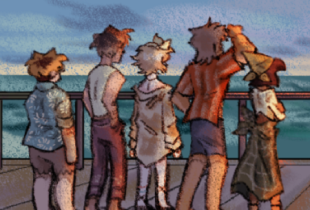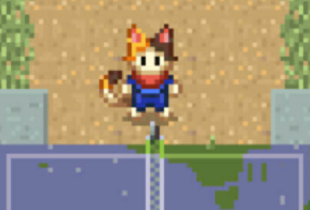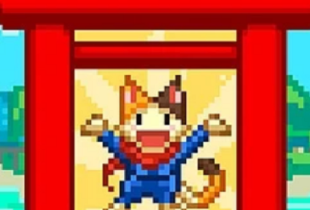Game description:
Pineapple on Pizza is a short narrative-driven walking simulator set on a colorful tropical island where everyone appears to be celebrating. The player arrives without instructions or context, free to explore the island at their own pace. The environment is cheerful, the music is upbeat, and the characters are constantly dancing. At first glance, the game seems to be focused on light, feel-good interaction, but it subtly leads the player toward a deeper, more unsettling realization hidden beneath its joyful surface.
A Peaceful World With Hidden Tension
As players walk through the island, they observe dozens of characters locked in celebration. There is no combat, no quests, and no dialogue—only observation and presence. The game's simplicity makes it accessible but also leaves room for personal interpretation. The player becomes a silent observer in a place that feels both welcoming and strange. At the center of the island stands a volcano, inactive yet clearly important. The absence of clear objectives creates a feeling of curiosity about the island’s true nature.
A Shift in Tone
The turning point in Pineapple on Pizza happens when players choose to interrupt the celebration. This decision leads to a sudden tonal shift, completely altering the atmosphere of the game. What seemed like a peaceful party reveals itself to be something more fragile and possibly irreversible. This emotional contrast between the joyful surface and the heavy consequences of the player’s action creates a memorable and surprisingly powerful experience.
Key elements of the gameplay include:
Free exploration with no objectives
Environmental storytelling through animation and design
A single meaningful choice that changes everything
A visual and musical atmosphere that evolves
A runtime short enough for a single sitting
Reflective and Impactful
Though minimalistic in design, the game leaves a lasting impression. Without using words, Pineapple on Pizza asks the player to consider their role in changing the world around them—even unintentionally. The game has been discussed widely for its deceptive tone, drawing comparisons to other short-form indie experiences that deliver emotional weight through simple mechanics. It doesn’t aim to explain itself but rather allows each player to interpret the story based on how they chose to act.
Pineapple on Pizza uses minimal gameplay and bright visuals to hide a powerful emotional core. It proves that even the shortest games can carry depth when they rely on atmosphere, player choice, and contrast. It’s a quiet reflection on impact, framed within a strange island party that never quite feels as innocent as it seems.
























































































































































Comments